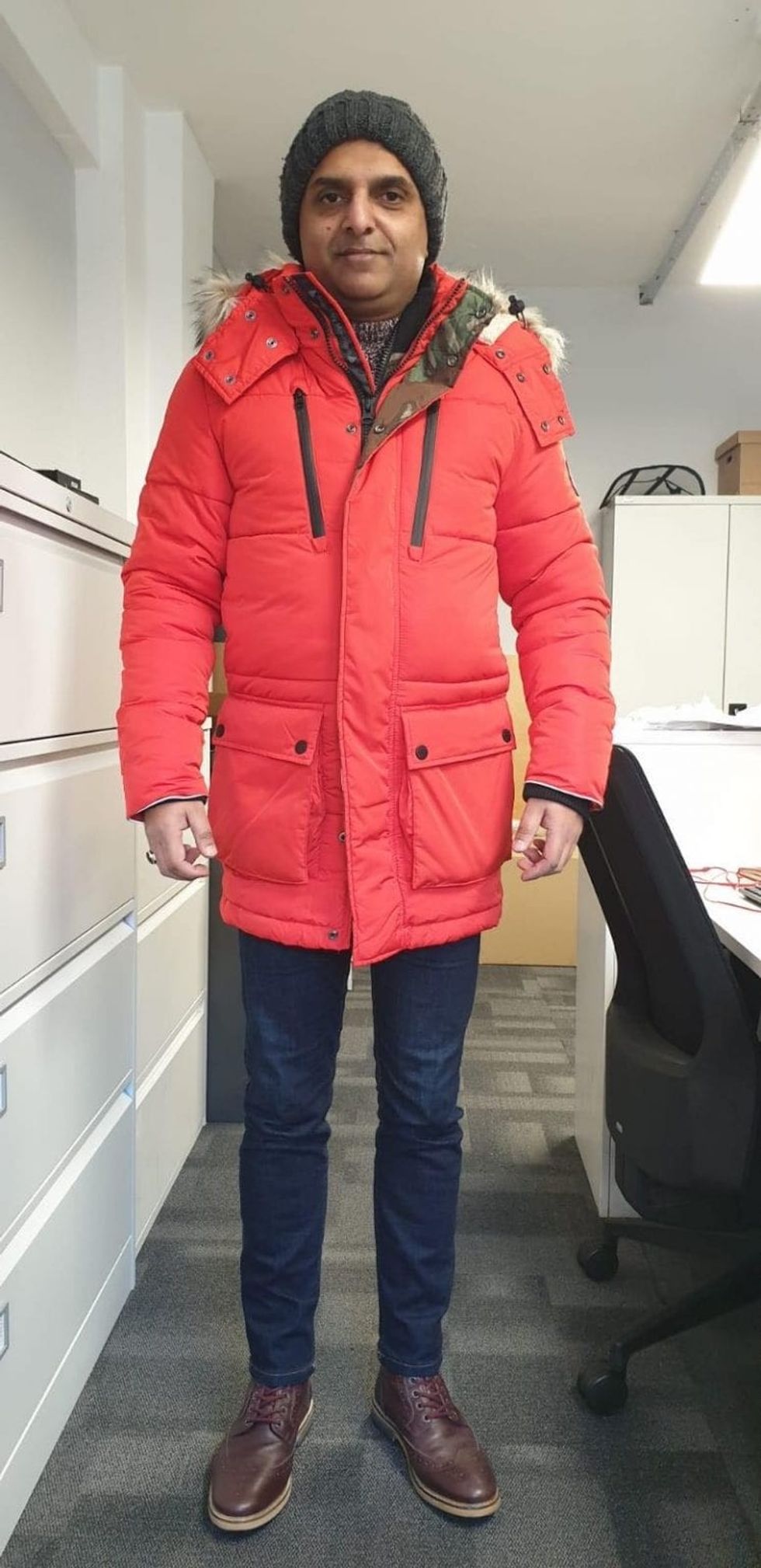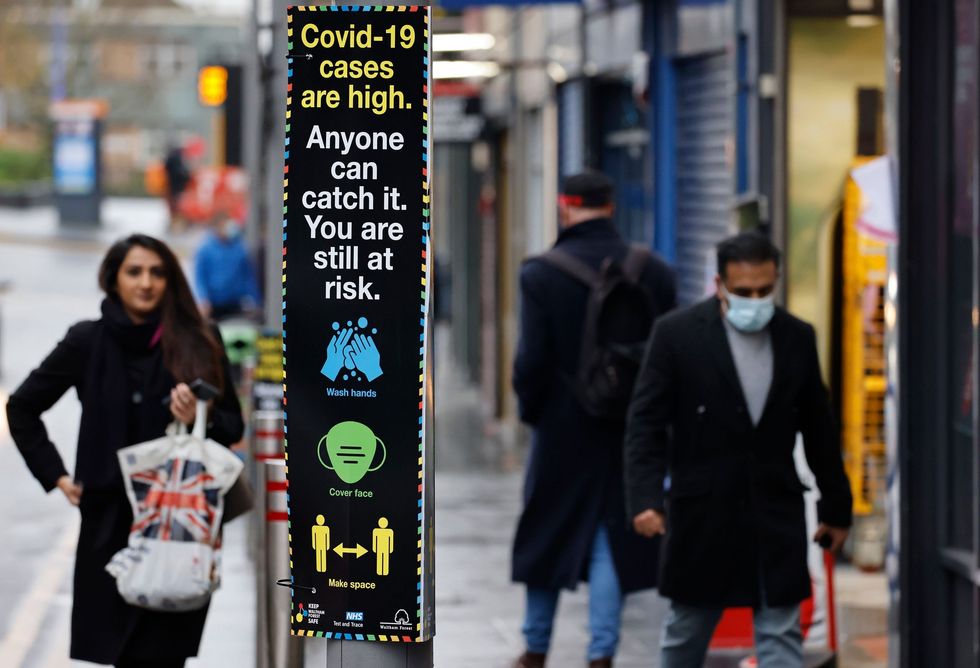TWO Covid-19 survivors have opened up about their ongoing recovery process, admitting they are still struggling with symptoms of the disease today.
Statistics from the Department of Health and Social Care (DHSC) in February showed that approximately one in 10 people with coronavirus continues to experience symptoms and an impaired quality of life beyond 12 weeks – otherwise known as ‘long Covid’. Common symptoms include extreme tiredness (fatigue), shortness of breath, chest pain, heart palpitations and memory loss.
Speaking to Eastern Eye, two men who were infected last year and continue to suffer from symptoms have revealed the ways in which Covid has affected their health.
Sohail Anjum contracted coronavirus last March. He was admitted to hospital where he spent 23 days in an induced coma in an intensive care unit (ICU), and was later told he only had a 50 per cent chance of survival. The 48-year-old, who spoke to Eastern Eye about his experiences last June, said one year on, he is still struggling with symptoms related to long Covid. He suffers from breathlessness, fatigue, and an erratic heart rate, which shoots up even with minimal exertion, such as climbing the stairs.

The Londoner, who works in the film and TV industry, said it was a slow process, but he is determined to get better. “My main focus at the moment is getting my health on track. I’ve been pacing myself and resting when I need to,” he explained, saying he only works a couple of hours a day. “That’s one of the things they teach you post Covid – pacing yourself is so important.”
Currently under the care of a respiratory clinic, Anjum has regular check-ups by various medics, including a cardiologist. The last report from the clinic showed his lungs were functioning at 70 per cent. In addition, he recently completed a six-week course on post Covid rehabilitation exercise classes.
Although his concentration has been largely unaffected, Anjum said he does daily brain puzzles to help his memory. “There are times where I have difficulty remembering things,” he admitted. “I’ve been trying various methods trying to combat the fatigue as well. I’ve had cupping therapy (alternative medicine thought to help an array of medical conditions) done in December and February, which has really helped.”
Virya Biswas* caught Covid-19 last November. He described the illness as the “worst type of flu you can imagine”. He was unable to get out of bed, lost his sense of taste and smell and suffered from extreme fatigue. “I wouldn’t wish (Covid) on my worst enemy,” the 56-year-old said.
Months later, Biswas is still feeling the after-effects of Covid. He frequently wakes up at night feeling out of breath and coughing, and his sense of taste and smell have not fully returned either. “I add so much salt to my food now and I can’t tell if my wife has added chilli to our meals or not,” he said.

Over time, Biswas has managed to build up his strength again. “In the first couple of weeks (of recovery), I could only manage about 10 minutes of walking,” he recalled. “I thought I was in real trouble – but now I’ve been building up to what I normally walk, which is around three miles a day.”
Although he has not contacted his GP about his ongoing symptoms, Biswas said he would be concerned if he was still showing signs of it in the future. “If within 12 months, I’m not back to normal, then I’ll probably go to the GP,” he said. “But I’m just trying to be careful with my health – keeping my weight down and going on walks.”
As well as the effects on their health, the virus has had other long-lasting impacts. Anjum’s mother Rashida died from the disease while he was in the ICU. Almost 12 months after her death, he admitted it had been a “tough” year without her.
Two more of his family members have passed away from Covid in recent months. “It’s been a traumatic year for (the family), but you’ve just got to accept what has happened and carry on,” Anjum said. In recent weeks, he and other members of his immediate family had their Covid-19 immunisation jabs.
The photographer has urged other members of the Asian community to accept the vaccination when they are offered it. “Ignore the conspiracy theories that have been spread about the vaccine,” he said. “My advice to the south Asian community is just go out there, take the vaccination and help reduce the risks.”
In February, the government announced £18.5 million of funding would be used for research projects in order to help better understand the causes, symptoms, and treatment of long Covid. Acknowledging the “lasting and debilitating” impact of the condition on coronavirus
patients, health secretary Matt Hancock said: “In order to effectively help these individuals, we need to better understand long Covid and identify therapeutics that can help recovery.”
Professor Chris Whitty, chief medical officer for England and head of the National Institute for Health Research (NIHR), added: “This research, jointly funded through the NIHR and UKRI, will increase our knowledge of how and why the virus causes some people to suffer long-term effects following a Covid-19 infection – and will be an important tool in developing more effective treatments for patients.”
*Name has been changed to protect identity



